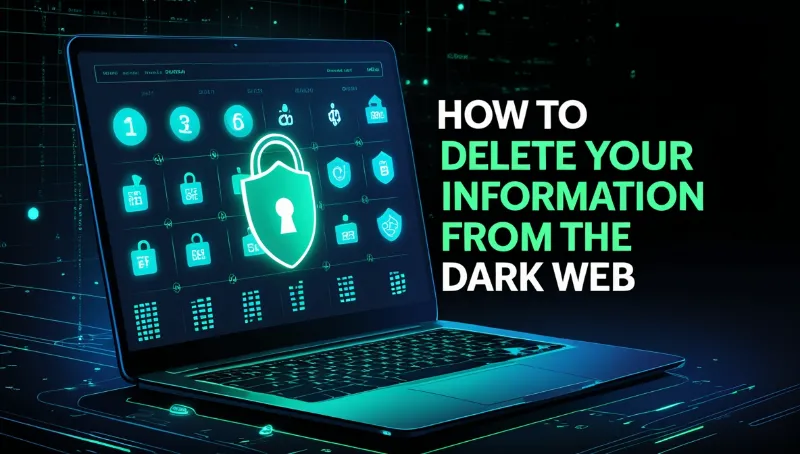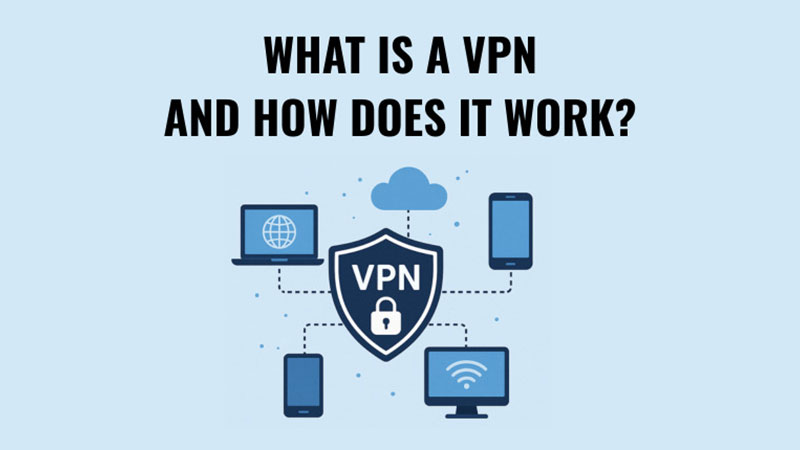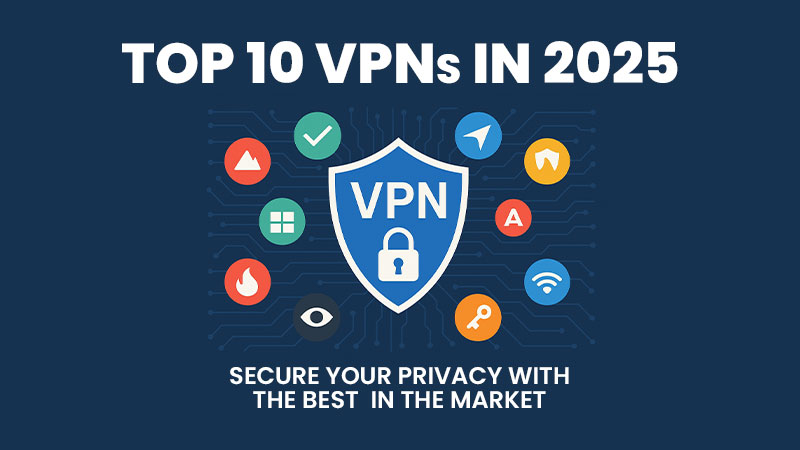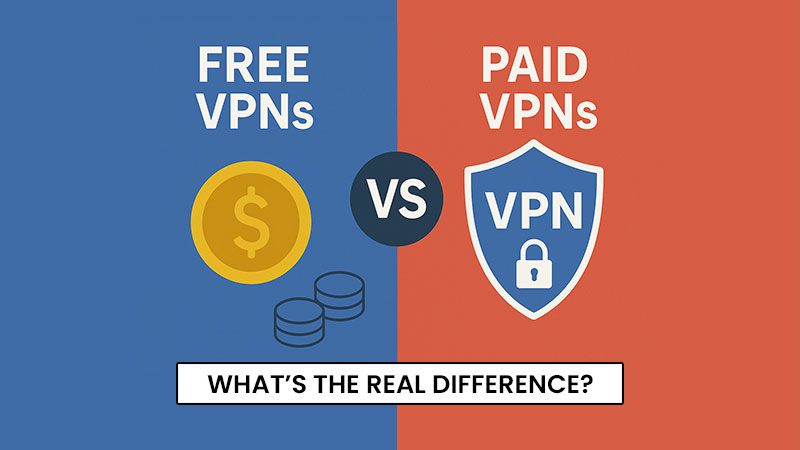How to Delete Your Information from the Dark Web is a concern many people face after data breaches or identity theft. Taking action quickly can reduce the risks of fraud, scams, and misuse of your personal details. This step-by-step guide explains practical methods to detect if your information is on the dark web, remove sensitive data, and strengthen your online security. You’ll also learn about monitoring tools, professional recovery services, and prevention strategies to keep your identity safe in the future.
Why Your Information Ends Up on the Dark Web
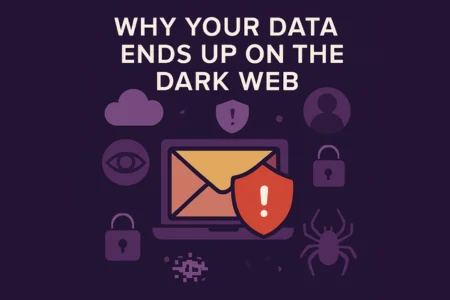
The dark web is a hidden layer of the internet where stolen personal data is bought, sold, and traded anonymously. From email addresses and passwords to financial records and biometric data, this underground marketplace thrives on digital vulnerabilities. But how does your information get there in the first place?
Key Reasons Your information Is Leaked on Darkweb
- Corporate Data Breaches: When companies suffer cyberattacks, user databases containing login credentials, payment details, and personal identifiers are often exposed and dumped on the dark web.
- Phishing & Social Engineering: Cybercriminals use deceptive emails, fake websites, and impersonation tactics to trick users into revealing sensitive information.
- Malware & Spyware Infections: Malicious software can silently collect data from your device, including keystrokes, saved passwords, and browsing history.
- Weak or Reused Passwords: Using the same password across multiple platforms increases the risk of credential stuffing attacks, where one breach leads to access across many accounts.
- Oversharing Online: Publicly posting personal details – like your birthdate, address, or family info – can be harvested and used to build a profile for identity theft.
- Unsecured Public Wi-Fi: Accessing accounts over open networks without encryption can allow attackers to intercept your data in transit.
- Data Brokers & Third-Party Apps: Some apps and services collect user data and sell it to advertisers or aggregators, which can eventually be scraped or leaked.
Common Sources of Dark Web Exposure
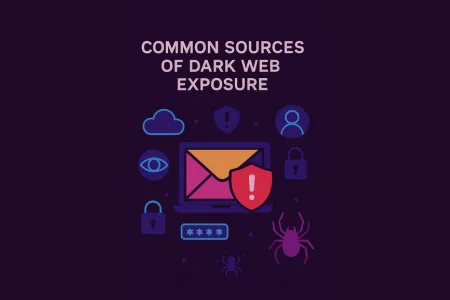
Understanding how your personal data ends up on the dark web is the first step toward protecting it. Here are the most frequent sources of exposure—each one a potential gateway for cybercriminals:
- Corporate Data Breaches: When businesses are hacked, customer databases containing emails, passwords, and payment details are often leaked and sold on dark web marketplaces. Even trusted brands aren’t immune.
- Phishing & Social Engineering Attacks: Fraudulent emails, fake login pages, and impersonation tactics trick users into handing over sensitive information. These attacks are increasingly sophisticated and hard to detect.
- Malware & Spyware: Infected devices can silently transmit your data – including keystrokes, saved credentials, and browsing history – to attackers without your knowledge.
- Weak or Reused Passwords: Using simple or repeated passwords across multiple accounts makes it easy for hackers to launch credential stuffing attacks and gain access to your entire digital footprint.
- Oversharing on Social Media: Public posts that reveal your birthdate, location, or family details can be harvested to build a profile for identity theft or targeted scams.
- Unsecured Public Wi-Fi: Accessing sensitive accounts over open networks – like those in airports or cafes – can allow attackers to intercept your data in real time.
- Data Brokers & Third-Party Apps: Many apps and services collect user data and sell it to aggregators. Once this data is scraped or leaked, it can end up on the dark web.
Can You Actually Delete Your Information from the Dark Web?
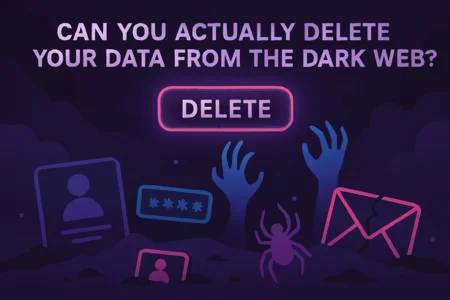
Let’s be honest: complete deletion is nearly impossible. The dark web is decentralized, anonymous, and lacks any governing authority. Once your data is leaked, it’s often copied, archived, and redistributed across multiple forums, marketplaces, and encrypted channels.
However, that doesn’t mean you’re powerless. You can take proactive steps to minimize the damage, prevent further exposure, and protect your identity.
Why is it so difficult to Delete Your Information from the Dark Web
- Decentralized Infrastructure: The dark web operates across thousands of anonymous servers, making it nearly impossible to track or remove data once it’s posted.
- No Central Authority: Unlike traditional websites, there’s no governing body or administrator to request data removal.
- Data Replication: Once your information is leaked, it’s often copied and shared across multiple platforms, making full deletion unrealistic.
- Encrypted Transactions: Many dark web marketplaces use encryption and cryptocurrency, further complicating traceability and takedown efforts.
What You Can Do Instead
- Monitor for New Breaches: Use dark web monitoring tools to stay informed about new exposures.
- Secure Your Accounts: Change passwords, enable two-factor authentication, and update security questions.
- Freeze Your Credit: Prevent identity theft by freezing your credit with major bureaus.
- Report to Authorities: File complaints with cybercrime units and affected institutions.
- Use Data Removal Services: Opt out of data broker sites and delete unused accounts.
- Invest in Identity Protection: Subscribe to services that offer dark web monitoring and recovery assistance.
Step-by-Step – Delete Your Information from the Dark Web
Taking action after discovering your data on the Dark Web is critical. Here’s a comprehensive, checklist to help you respond effectively and protect your identity.
Scan the Dark Web for Your information
Start by identifying what personal information has been compromised. Use reliable dark web scanning tools and breach alert services:
- Dark Web Monitoring Services: Tools like Aura, Identity Guard, and Norton LifeLock can scan dark web forums for your data.
- Password Managers with Breach Alerts: Services like Dashlane and 1Password notify you if your credentials appear in known breaches.
- Free Tools: Use HaveIBeenPwned to check if your email or passwords have been exposed.
Change Compromised Credentials Immediately
If your login details are found on the dark web, act fast:
- Create Strong Passwords: Use a password manager to generate and store complex, unique passwords.
- Enable Two-Factor Authentication (2FA): Add an extra layer of security to your accounts.
- Update Security Questions: Choose answers that aren’t easily guessable or publicly available.
- Change Email or Phone Number: If these are heavily compromised, consider switching to new ones.
Freeze Your Credit
Prevent identity theft by freezing your credit profile with major bureaus:
- Equifax, Experian, TransUnion: Request a credit freeze online to block unauthorized access.
- Monitor Credit Reports: Regularly check for suspicious activity or new accounts.
Report to the authorities if your data is on the dark web
Notify relevant organizations to initiate investigations and protect your assets:
- Cybercrime Units: Contact your local law enforcement or national cybercrime division.
- Indian Cyber Crime Reporting Portal: File a complaint at cybercrime.gov.in.
- Financial Institutions: Alert banks, credit card companies, and service providers.
Clean Up Your Digital Footprint
Reduce your online exposure by removing unnecessary data:
- Opt Out of Data Broker Sites: Use services like DeleteMe or Incogni to remove your info.
- Delete Unused Accounts: Close old accounts that may still store personal data.
- Clear Browser History & Cookies: Regularly clean your browser to prevent tracking.
Invest in Identity Protection
Subscribe to a trusted identity protection service to stay ahead of future threats:
- Dark Web Monitoring: Get alerts when your data appears online.
- Recovery Assistance: Access support for restoring your identity and securing accounts.
- Insurance Coverage: Some services offer financial protection against identity theft.

